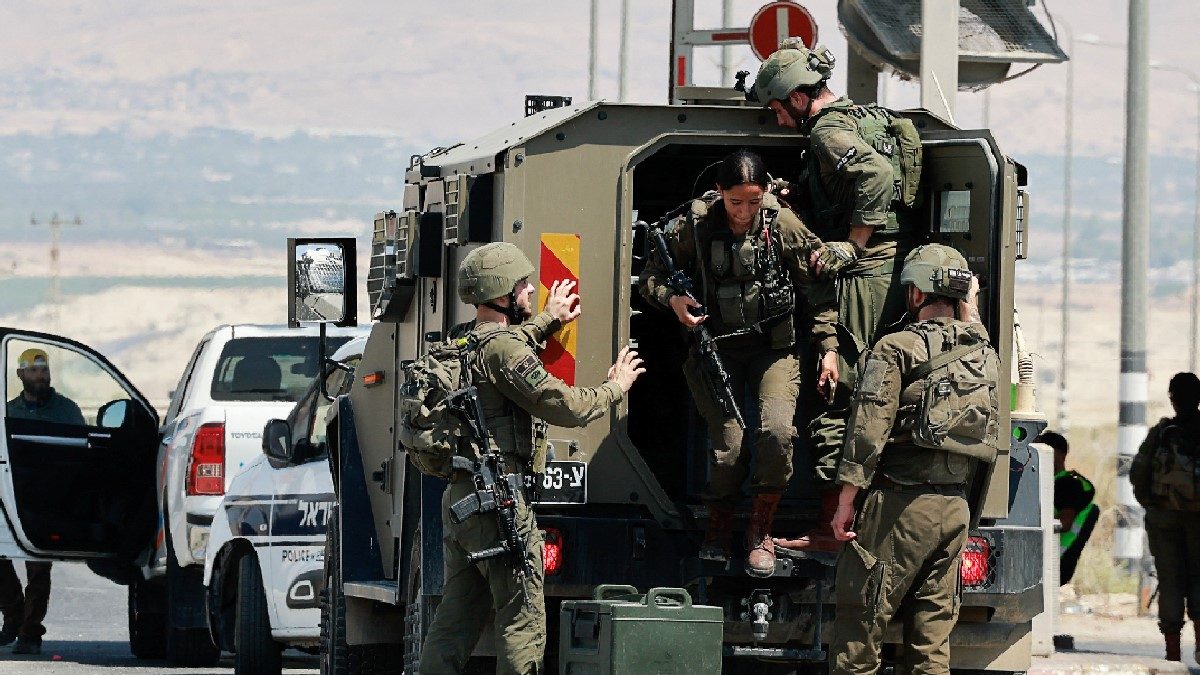The deadly attack at the Allenby Bridge crossing, the only international gateway for Palestinians from the West Bank that does not require entering Israel, highlighted the escalating violence in the region, driven by the ongoing Israel-Hamas war and the complex political landscape of the Israeli-Palestinian conflict. This attack served as a stark reminder of the deep-rooted tensions and the fragile security situation in the region.
The Allenby Bridge Attack: A Symbol of Escalating Violence
The shooting at the Allenby Bridge, also known as the King Hussein Bridge, was a rare and shocking incident that underscored the heightened security risks and the precariousness of the situation in the occupied West Bank. The attack, which resulted in the deaths of three Israeli security guards, further fueled tensions between Israel and Palestinians, complicating ongoing efforts towards a ceasefire in the Gaza Strip.
The Attacker and the Motive
The driver, whose identity and nationality were not immediately disclosed by Israeli authorities, was labeled a “despicable terrorist” by Prime Minister Benjamin Netanyahu, who blamed Iran for inspiring the attack. Hamas, the Palestinian militant group that governs Gaza, while not claiming responsibility for the attack, praised the shooting as an affirmation of the “Arab peoples’ rejection of the (Israeli) occupation” and its “crimes.” This conflicting narrative surrounding the attack highlighted the complex political and ideological dimensions of the conflict, underscoring the deep animosity and distrust between Israelis and Palestinians.
The Security Implications
The attack raised serious concerns about security vulnerabilities at the Allenby Bridge, a critical crossing point for Palestinians traveling to and from the West Bank. The presence of private security guards alongside Israeli security forces at the crossing was clearly not sufficient to deter the attack, emphasizing the need for a robust and comprehensive security strategy to ensure the safety and security of individuals and infrastructure. The incident also raises questions about the effectiveness of existing security measures and the need for ongoing evaluations and enhancements to address evolving threats.
The Broader Context of the Israeli-Palestinian Conflict
The attack at the Allenby Bridge transpired against the backdrop of a multifaceted and intractable conflict characterized by decades of violence, displacement, and unresolved political issues. The escalation of violence in the West Bank, the ongoing war in Gaza, and the broader political landscape surrounding the conflict created a volatile environment where tensions easily boiled over into violence.
The West Bank: A Hotspot of Conflict
The occupied West Bank, a territory claimed by both Israel and the Palestinians, has been a hotbed of conflict for years. In recent months, the situation has deteriorated significantly, with heightened Israeli military operations, increased Palestinian attacks, and a surge in settler violence. This cycle of violence, often characterized by retaliatory actions and an escalating spiral of unrest, has led to a loss of life on both sides and a deepening of mistrust between Israelis and Palestinians.
The Gaza War: A Devastating Conflict
The ongoing war in Gaza, which began in October 2023 with Hamas’s attack on Israel, has further exacerbated tensions and led to a devastating humanitarian crisis. The Israeli military response has resulted in heavy casualties and widespread destruction in the Gaza Strip, while Hamas’s continued use of rocket attacks has inflicted civilian casualties in Israel. The ongoing fighting, coupled with the continuing deadlock over the release of hostages held by Hamas, has created a deeply troubling stalemate and raised significant concerns about the potential for further escalation and regional instability.
International Reactions and Calls for Peace
The Allenby Bridge attack, alongside the ongoing Gaza war and the volatile situation in the West Bank, sparked global concern and calls for a de-escalation of violence and a resumption of peace talks. The international community has sought to exert pressure on both Israel and Hamas to reach a ceasefire and engage in a negotiated settlement.
The UN’s Role
The United Nations, through its various agencies and representatives, has been actively involved in mediating and facilitating peace efforts. The UN has consistently condemned violence and called for a comprehensive and just resolution to the Israeli-Palestinian conflict.
US Mediation Efforts
The United States, a close ally of Israel and a significant actor in the region, has also been involved in mediation efforts. However, US efforts to achieve a lasting ceasefire have been hampered by the deep political divisions between Israel and Hamas and the difficulty of achieving consensus on core issues like the status of Jerusalem and the fate of Palestinian refugees.
Takeaway Points
The attack at the Allenby Bridge serves as a stark reminder of the precariousness of the Israeli-Palestinian conflict and the ongoing need for a comprehensive and lasting solution. The following key takeaways highlight the gravity of the situation and the urgent need for international intervention and a commitment to peaceful negotiations:
- Violence perpetuates the cycle of conflict. The constant cycle of violence and retaliatory actions in the West Bank and Gaza Strip has only intensified tensions and fueled mistrust between Israelis and Palestinians.
- A political solution is essential. A comprehensive political settlement addressing core issues such as the status of Jerusalem, Palestinian refugees, and Israeli settlements is crucial to ending the violence and achieving lasting peace.
- The international community has a critical role to play. The international community must exert concerted pressure on all parties involved to de-escalate the conflict, facilitate peace talks, and work toward a negotiated solution that guarantees the security and rights of both Israelis and Palestinians.
- The urgency of the situation cannot be overstated. The ongoing violence in the region continues to claim lives, devastate communities, and erode hope for a peaceful future. Time is of the essence, and a decisive commitment to peace is urgently needed.









